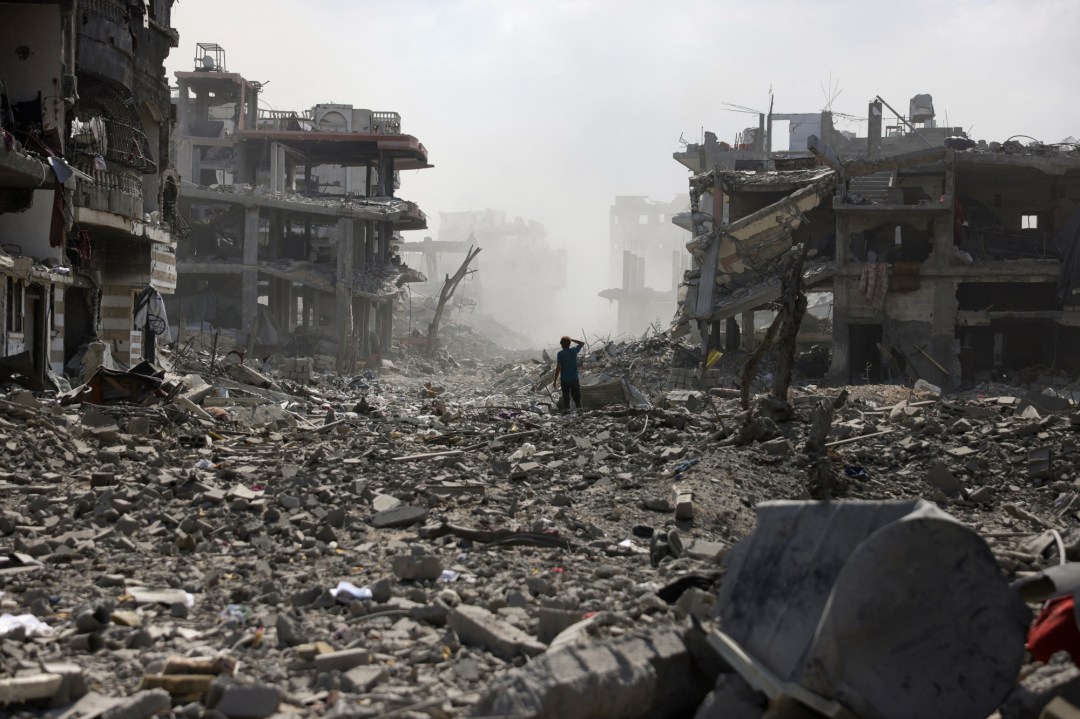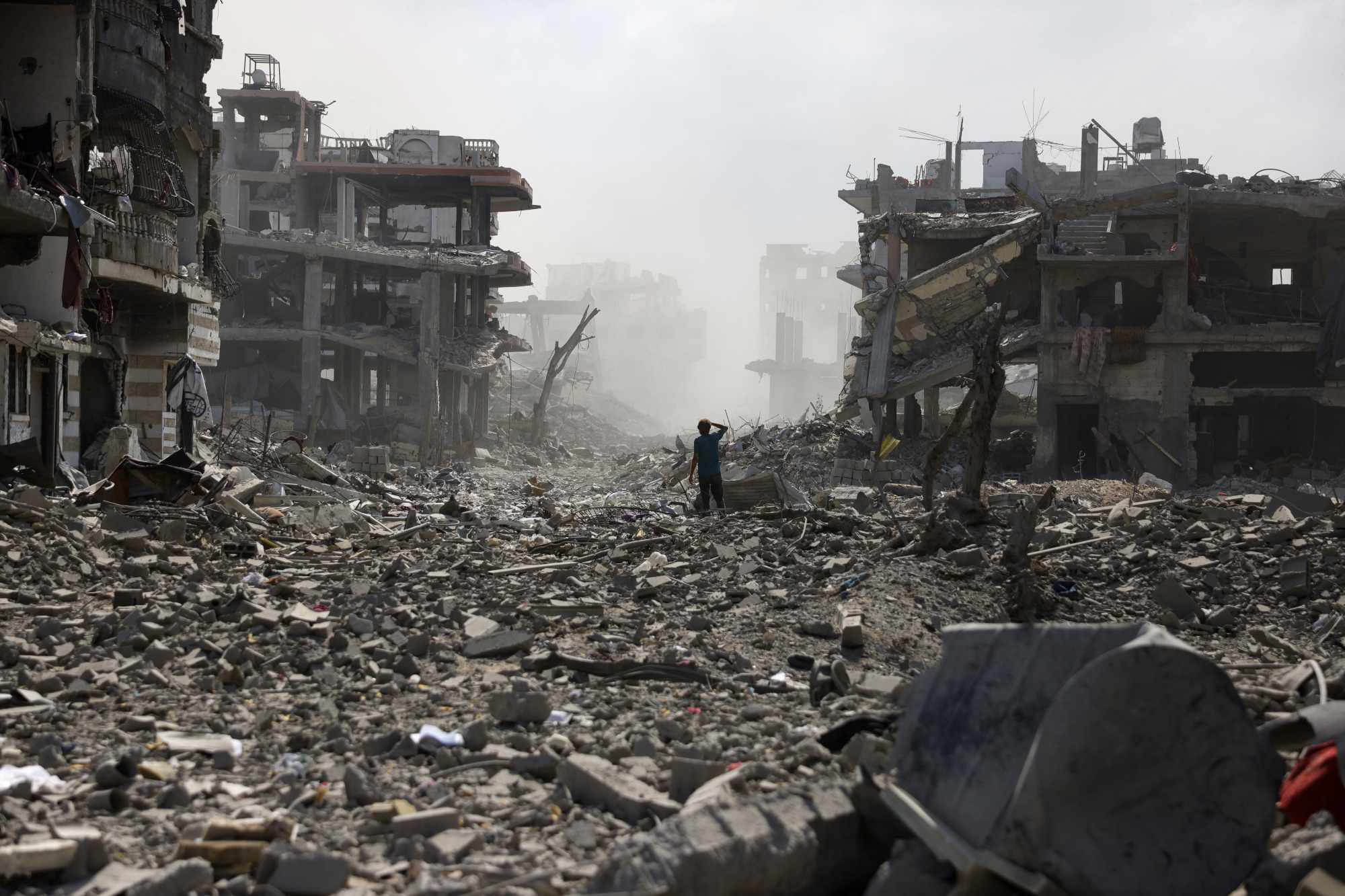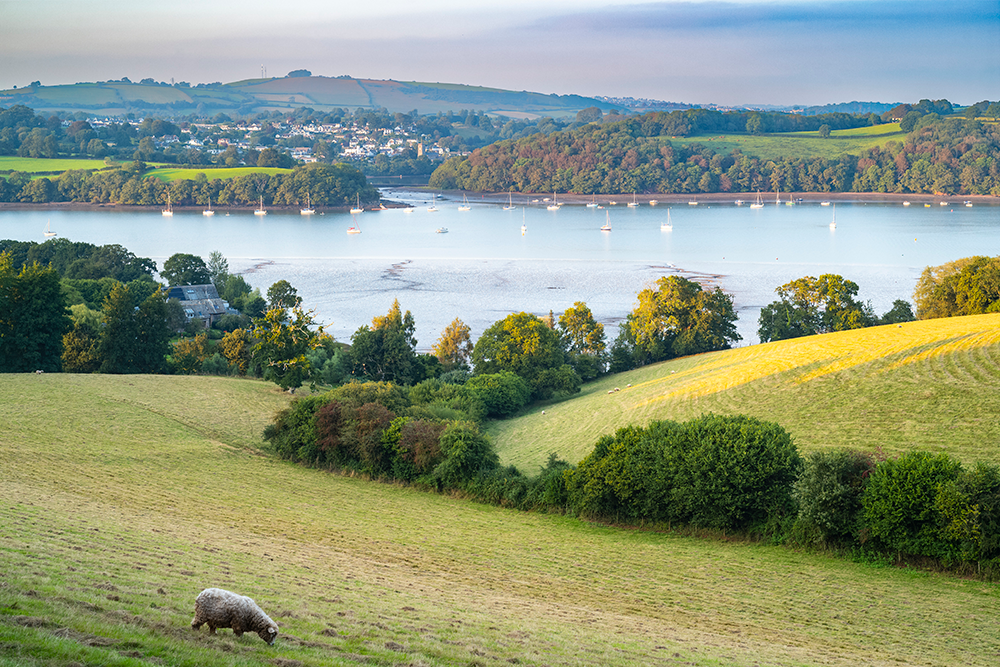Belgium will become the latest western country to recognise a Palestinian state. Its foreign minister Maxime Prevot cited ‘the violence perpetrated by Israel in violation of international law’ and Belgium’s obligation to ‘prevent any risk of genocide’. He maintained his government was not ‘sanctioning the Israeli people’ but ‘ensuring that their government respects international and humanitarian law’. Belgium, he added, was ‘taking action to try to change the situation on the ground.’
The Palestinian contribution to this endless war is seldom discussed candidly
Palestine is the net zero or gender self-identification of 2025: a cause that gains esteem in intellectual, institutional and cultural circles and becomes policy in countries where politicians act for their counterparts in other nations rather than the public in their own. That is not to dismiss the Palestinians’ legitimate grievances. They ought to run their own affairs free from the interferences and impositions of the Israeli army and the Shin Bet. Whether that takes the form of a sovereign state or some other arrangement is secondary to the goal of ending the misery so many endure in Gaza and the West Bank. But that goal cannot be achieved by unilateral actions like the one Belgium has taken. In fact, such actions push peace further away.
The only road to Palestine goes through the Palestinians. There is no alternative route. The Palestinians have to accept Israel not only as a political or military reality but as a legitimate country, the nation state of the Jewish people, the ingathering of an indigenous and exiled people to their historic and spiritual homeland. This used to be doctrine among two-state solutioners, not least because Yasser Arafat had demonstrated how formal recognition was no barrier to continued incitement and rejectionism. (Example: on December 16, 2001, under post-9/11 pressure from the United States to clamp down on terrorism, Arafat gave a speech urging ‘a complete cessation of any operation or actions, especially suicide attacks’, and was duly feted in world capitals and by the media. Two days later, with international attention elsewhere, he gave a speech in Ramallah declaring that ‘one martyr in the Holy Land is worth 70 martyrs anywhere else’.)
But substantive recognition has fallen out of fashion, along with other safeguards intended to secure a lasting peace. Those who have grown impatient with or hostile towards Israel say that requiring the Palestinians to acknowledge Israel as the Jewish state requires them to profess Zionism, and that is implausible if not impossible. It might well be, but no more so than a two-state solution itself. The only way that paradigm can work is if there is a genuine and enduring truce between the two nations. A mere end to hostilities would be insufficient. The Palestinians must want to live in peace with Israel for a Palestinian state to be sustainable. There is plenty of work, self-reflection and sacrifice to be done on both sides but while Israel’s role in the conflict is spoken of – it sometimes seems like we speak of little else – the Palestinian contribution to this endless war is seldom discussed candidly.
Notice, for instance, how we talk about the October 7 attacks. We say that Hamas and other terrorists entered Israel and murdered its citizens, but Hamas is not just a terror organisation, it is the de facto government of Gaza. How did it become so? Well, there was a civil war between Hamas and the Fatah-controlled Palestinian Authority that ended with Hamas in charge of Gaza and the PA running the West Bank. What prompted the civil war? As part of his mission to spread democracy in the Middle East, George W Bush pressured the PA to hold legislative elections and, in concert with experts and foreign ministries across the West, dismissed Israeli warnings that Hamas would win. So Palestinians went to the polls in January 2006 and duly elected Hamas in a ballot monitors from the Jimmy Carter Centre attested to have been ‘peaceful, competitive, and genuinely democratic’. Fatah and Hamas proved incapable of governing together, and in accordance with Palestinian political tradition began killing one another.
Bush’s arrogance is damnable but we shouldn’t lose sight of the most pertinent detail here: the Palestinians voted for Hamas. Hamas was not an unknown quantity at this point. It had been murdering Israelis for years and affirmed in its charter: ‘Israel will exist and will continue to exist until Islam will obliterate it.’ Four months before polling day, Hamas kidnapped Sasson Nuriel, an Israeli businessman and father of three. They blindfolded him, made him read pro-Hamas propaganda on video, then stabbed him to death and discarded his body at a rubbish dump. Palestinians voted for the political face of that. I’d like to think if Reform started abducting and murdering people, it would have an adverse impact on their poll numbers.
Yes, we are told, but that was 20 years ago and many Palestinians weren’t even alive to vote in that election. That supposes a fundamental transformation of Palestinian culture and attitudes in the past two decades, for which there is scant evidence. Although its leadership is unpopular, and would likely lose a presidential contest to someone like Marwan Barghouti, a May poll on voting intentions for legislative elections put Hamas comfortably in the lead. Polled in December 2023, 72 per cent of Palestinians backed the October 7 massacre, a figure which has since fallen but nonetheless sits at 50 per cent today. These are not the responses of a populace ready to co-exist peacefully with its neighbours. Call them a state, give them a full seat in the General Assembly, do whatever you like but it won’t change Palestinian national culture. Only the Palestinians can do that.
States reflect national culture and a State of Palestine that has not made its peace with Zionism will not be secure in its peace with Israel. Its leaders might say all the right words, some might even sincerely mean them, but a Palestine which does not accept Jewish sovereignty in part of the Land of Israel will be a Palestine that cannot be relied upon to resist political forces pushing fresh confrontation with Israel. It is not enough to get rid of Hamas or marginalise likeminded factions. Palestinian national culture must come to reject the impulses and prejudices that lead so many to support these factions and to console themselves that Israel is a temporary entity squatting on Arab land and will one day, inshallah, be dismantled.
Two states living side by side in a sustained peace will only be possible if the Palestinians accept not just the reality but the legitimacy of Zionism. Only they can make that choice but the international community could, if it wanted, encourage them. By penalising rather than rewarding extremism and rejectionism. By holding the Palestinians to standards that would shape any future state to be stable, peaceful and self-sustaining. By telling them that the world stands ready to bring their awful plight to an end but won’t wait forever for them to take the steps needed on their part. This the international community will not do because in the framing of western liberalism the Palestinians are victims, not participants in a conflict but the captives of an oppression.
Left, right and centre there is a pronounced shift away from Israel and towards this worldview. It is every bit as arrogant and foolhardy as Bush’s insistence on Palestinian elections, and Israelis and Palestinians will pay the price with another generation of death and suffering. The Palestinians are oppressed but they are also belligerents and the former status will not change until the latter does. That’s a harsh truth but a truth all the same.
Those who consider themselves sympathisers with the Palestinians reject this analysis not because it is wrong but because they cannot conceive of the Palestinians as anything other than righteous victims, a people without agency who can be rescued from their circumstances only by western pressure on Israel. It is a patronising, paternalist worldview, and perhaps even a little racist. And no matter what the Palestinians’ would-be saviours do to Israel, October 7 has reminded Jerusalem that the world, including the United States, has very limited tolerance for Jewish self-defence. Israel cannot rely on anyone but itself and so its security must be airtight. It will not permit the imposition on its borders of a dysfunctional state that could readily become a launchpad for terrorism.
All this rather than tell Palestinians the truth and plead – demand – that they make their peace with Israel. The truth could, in time, bring about more autonomy, security, and prosperity, perhaps even a state to rival Israel in growth and innovation, but the world prefers to lie and allow the Palestinians to remain trapped in their saintly dispossession.









Comments